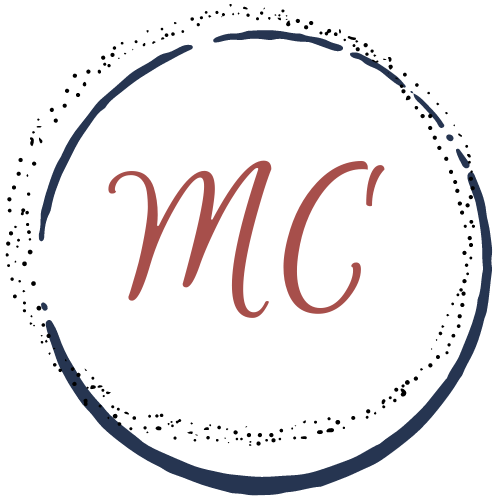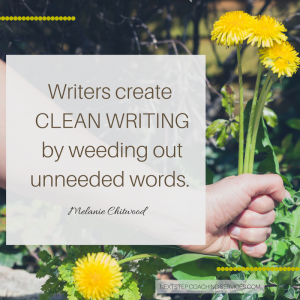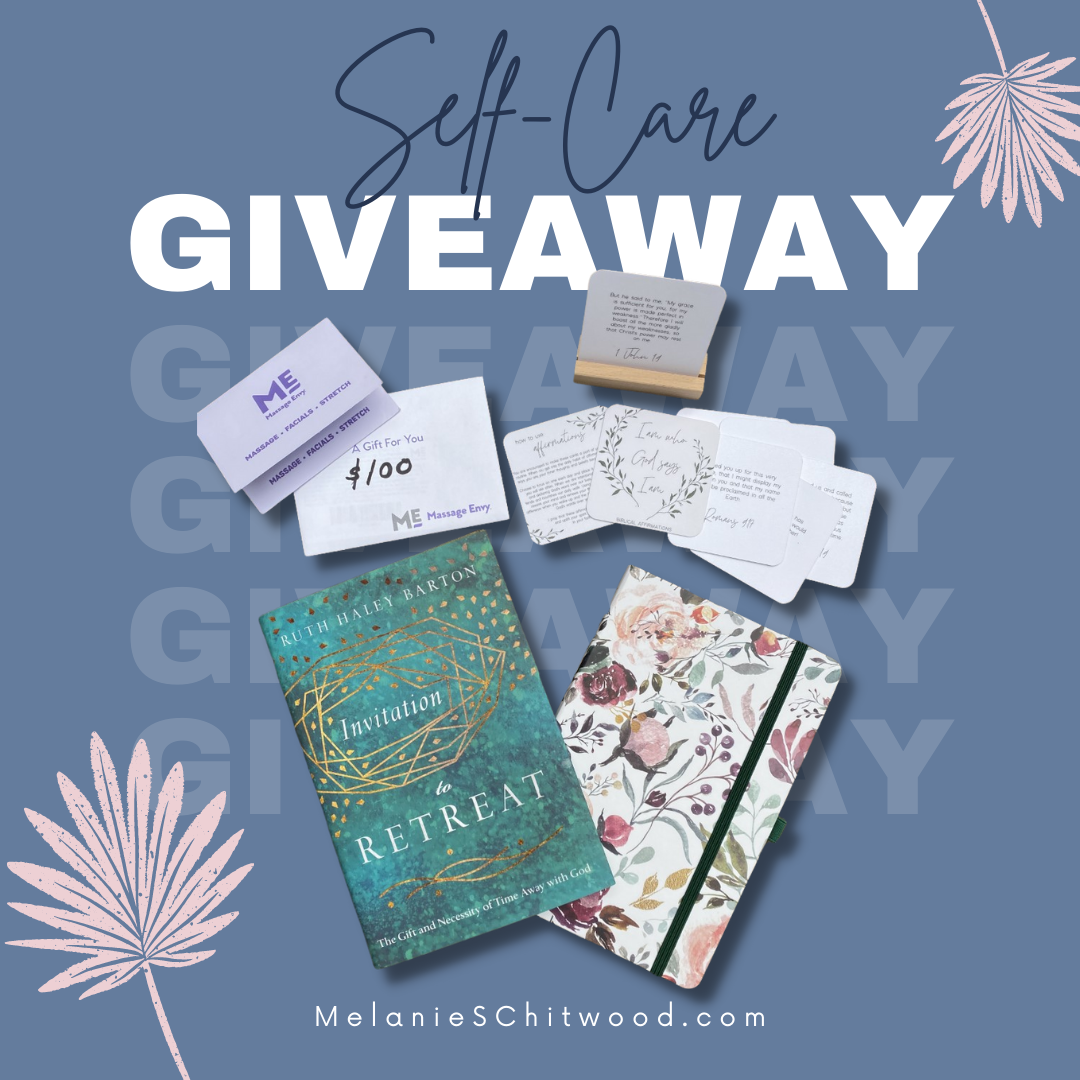Writing Qualities Our Readers Will Love: Clean Writing
One thing we all know about gardening – eventually you’ll have to weed your garden. While it can seem like an unending chore, ultimately you’ll be glad you did it when you see your plants thrive. The same is true with writers when it comes to creating our best writing. At some point in the writing process we need to weed and clean up our garden of words. One way to word-weed is to create clean writing.
Writers can develop clean writing by weeding out unneeded words. Clean writing contains no unnecessary words and is tight and streamlined.
We want our writing to be clean because this type of writing enables our reader to more readily follow our line of thinking. Plus, with the advent of social media readers have become accustomed to shorter sentences – and shorter everything! (Yes, a generalization and we’ll always find writers who break this guideline beautifully!)
The best way to identify and to improve these qualities in your work is to do your word-weeding during revisions.
Today we’ll look at three strategies for clean writing.
Note that each of these examples is not grammatically wrong. We are looking at the difference between weak verses strong writing.
Limit your use of There is/are or It is/are at the beginning of the sentence
While starting a sentence with “There is,” “There are,” or “It is,” is not wrong, this doesn’t produce clean writing. As you can see in the examples below, these words can almost always be eliminated.
Examples:
Weak: There was a time in my twenties when I broke the speed limit constantly, resulting in three speeding tickets in one month.
Strong: In my twenties I broke the speed limit constantly, resulting in three speeding tickets in one month.
Notice how “there was” does nothing to add to the sentence.
There or it at the beginning of a sentence is sometimes referred to as a “dummy subject.” Or another way to think of this is that there or it are filler words, serving no purpose in the sentence. So using the true subject of the sentence (who are what the sentence is about) improves our writing.
Sometimes you do want to start a sentence with there or it, and that’s okay. Just be aware of this guideline.
Use adverbs sparingly
Overuse of adverbs can make our writing overly wordy, detracting from clean writing.
A bit of grammar review: adverbs are words describing verbs, adjectives, or other adverbs. They often end in ly, such as slowly, rapidly. But not always. These are also adverbs: where, yesterday, often.
To combat the overuse of adverbs, use strong verbs or “punchy” verbs.
Let’s look at an example:
Weak: He walked slowly across the room.
In this sentence the adverb is slowly describing the verb walked. We can easily replace walked slowly with a more specific verb.
Strong: He meandered across the room.
Avoid filler words
Certain types of adverbs called intensifiers can usually be weeded out to help produce clean writing. Some examples of these: really, actually, very, definitely, just. When you’re revising, check to see if you can eliminate these words.
Remember, creating clean writing is a matter of improving your writing, not a matter of right or wrong. And in the end, you get to make the decision about your revisions. Style issues are in the writer’s hands!
Let me address one reservation you might have. Does clean writing prevent creativity? Or make your writing boring or stale? No! In fact it should do just the opposite. Just like ridding a garden of weeds allows plants to thrive, weeding unneeded words from your writing allows each word of your writing to dazzle like a blooming flower.
I like how this master of the English language puts it:
This requires not that the writer make all his sentences short, or that he avoid all detail and treat his subjects only in outline, but that every word tell.” ~William Strunk Jr. in The Elements of Style
~Melanie
If you find Next Step Coaching Services’ newsletter and services valuable, please share our post! We’d love to offer other women our free weekly newsletter filled with tips about ministry, speaking and writing, and to offer affordable speaker and writer coaching services and resources.








Thank you for this insight. It is easy to forget that people are so busy these days and they want a “hurry up” approach to everything and this includes reading. Writing clean can be just as powerful without losing the vision of what is being said. I’m off to do some cleaning and weeding!
Tracy Frederick
Hi Tracy,
Happy weeding! I like what you said about still not losing the vision! Our hurry-up society can be a little challenging, especially if we – as many writers are – people who ponder, think and take a little slower approach. Thanks for stopping by.
Wow! This was super helpful! I am guilty of all of these habits! I’m excited to try this new trick! Thank you!
Hi Kaitlin, Glad it was helpful! I am guilty of using them, too, something I noticed more after I wrote the blog post. I’m trying to use them less frequently, especially the intensifiers. Thanks for stopping by.
Good stuff! Be sure to edit just enough. We don’t want to pull flowers out with the weeds! I’m new to editing and was a little too ruthless with my latest piece. When I sent it to my friend for review, she said, “the Spirit isn’t there.” She was right! I had edited Him out.
Jennifer,
This is a great reminder to listen to the Holy Spirit as we write. I think we can be hard on ourselves, don’t you? I’m glad you had someone read and review. We need to be reminded to be true to ourselves and the Spirit’s leading! I think I’ll blog a bit about this in coming weeks. Thanks again!